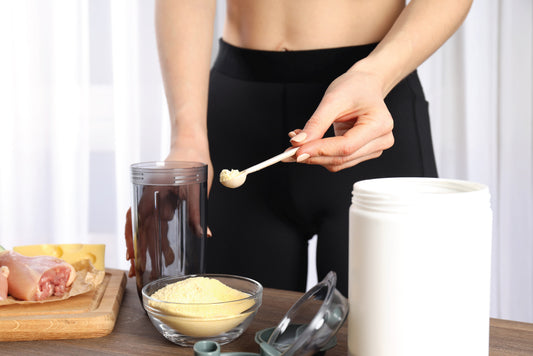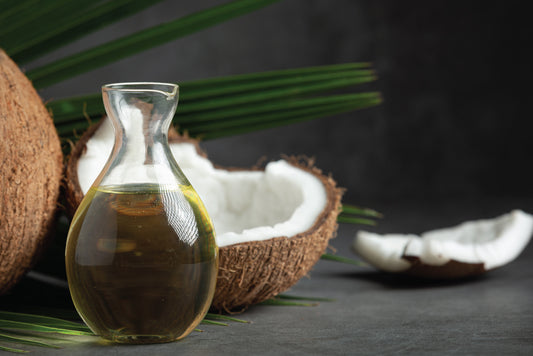Every single person suffers from hair fall at a particular point in age. Sometimes, it is so awful that your bedroom floor appears like a salon floor! Many individuals are even terrified that they would become bald.
But, no need to panic.
There are several strategies to manage your hair fall. Using ayurvedic herbs is one of the greatest and most effective techniques to grow your hair naturally. Ayurveda has numerous secrets to disclose that might assist to restore your hair growth.
15 Ayurvedic Herbs Best For Hair Growth
Following are some ayurvedic herbs that will give your hair a strong and healthy look.
-
Amla
It is also known as Indian Gooseberry or Amla.
The Indian gooseberry, commonly known as Amla, has a slew of health advantages, and frequent use will transform your hair into something you've never seen before.
There are several health benefits of eating it:
- Enhances the development of new hairs
- Dandruff is lessened, and frizziness is curbed.
- Ensures that hair does not fall out.
- Removes all nits and lice from the hair
- Hair greying is prevented and treated with this product
Using amla oil to massage your scalp can promote hair growth and increase blood flow. Overall health can be improved by drinking amla juice in the morning.
-
Rosemary
Our lives may be transformed by using Rosemary Essential Oils. Hair loss can be controlled and reduced by using rosemary essential oil. When taken daily, it promotes hair regeneration and new follicle growth.
-
Seeds of Fenugreek or Methi
Every kitchen has fenugreek or methi seeds. Vitamin A, vitamin C, vitamin K, protein, and folic acid are found in abundance in the seeds of this Ayurvedic medication.
It is well known that nicotinic acid, a protein found in the seeds of fenugreek, is an excellent remedy for hair loss, dandruff, and many other scalp conditions. It aids in hair development by providing nourishment for the strands.
-
Shikakai
When it comes to hair development, Shikakai is one of the most effective herbs. There are several advantages to using it, such as
- A dandruff-fighting ingredient
- Your scalp will be squeaky clean after using this product.
- Enhances hair follicle health
- Tones and lengthens the strands
- It is possible to drink this as a juice.
- A mixture of it and herbs can be administered topically.
- Coconut oil, lemon juice, and water are incorporated into the mixture.
-
Bhringraj
Indian plant Bhringraj (also known as a fake daisy), which thrives in damp places, is rich in vitamins, calcium, and magnesium. It is also a good source of iron. The usage of bhringraj oil for a variety of hair issues is fairly common.
The herb bhringraj is a safe and effective way to increase hair growth and decrease hair thinning. It calms the scalp by enhancing blood flow to the area and the hair follicles. It stimulates the follicles and roots of the hair to promote natural hair growth. It feeds your hair from the inside out, resulting in beautiful, healthy tresses.
-
Brahmi
Ayurvedic practitioners consider Brahmi to be a miracle herb for promoting hair growth and thickness.
Hair follicles are thinned, and this Ayurvedic herbal oil is great for preventing hair loss. The alkaloid in Brahmi oil stimulates a protein in your body that strengthens and toughens your hair naturally. You'll also feel more relaxed and happier after taking it. In addition, it aids in the treatment of a dry, damaged hairline.
-
Neem
In addition to encouraging hair development, reducing dandruff, boosting the hair's tensile strength, and reducing the itching of the scalp, Neem Neem provides silky smooth hair.
-
Jatmansi
When mixed with any carrier oil, the jatamansi herb stops hair from going grey too soon and helps hair grow faster. The herb makes sure that your scalp gets more blood.
-
Flaxseeds
Flaxseeds are another herb that does great things for your hair. It's full of fatty acids and antioxidants that help your hair grow and keep it healthy. It makes it easier to get rid of free radicals. Flaxseeds have other benefits, like stopping hair loss and making your hair feel soft and smooth.
-
The Hibiscus
The hibiscus flower, also called the shoe flower, gives dull hair shine and helps hair growth. You can heat any carrier oil you want with hibiscus in it. Heat the oil, then let it cool. Rub the oil into your head, then wash it off.
-
Reetha
Reetha is also known as soapnut because it has saponin in it. The agent cleans your scalp, which helps keep the PH level of your scalp stable.
-
Lemongrass
Lemongrass is good for hair growth because it stops hair loss and helps hair grow faster. Put dry lemongrass and water on to boil.
Filter the water.
Wash and condition your hair, then use the water that has been strained to rinse it one last time.
-
Basil leaves
The leaves of holy basil are called tulsi. The magnesium in tulsi calms your scalp and makes sure your blood flows well. Tulsi gives your scalp nutrients and keeps it moist.
-
Leaves of curry
Most often, curry leaves are used to make hair grow. It gives your hair nutrients and keeps it from falling out too soon. It also helps the blood flow.
-
Hair Guduchi (Giloy)
In the Ayurvedic system, Guduchi (Giloy) is known as the panacea herb because it can protect and heal. It has antioxidant properties that help treat a variety of hair problems and make hair grow faster.
Guduchi has anti-inflammatory properties that help it treat hair problems, dandruff, and other problems with the scalp and hair. It helps the hair stay healthy. Because Giloy is bitter and drying, it helps stop hair loss and dandruff.
Ending Note
In a nutshell, hair fall is a common problem for everyone, and the best solution is to use ayurvedic herbs for your hair growth. For centuries it is evident that ayurvedic herbs have no side effects and do wonders in hair growth. You can use the above -mentioned ayurvedic herbs for the best hair growth.




